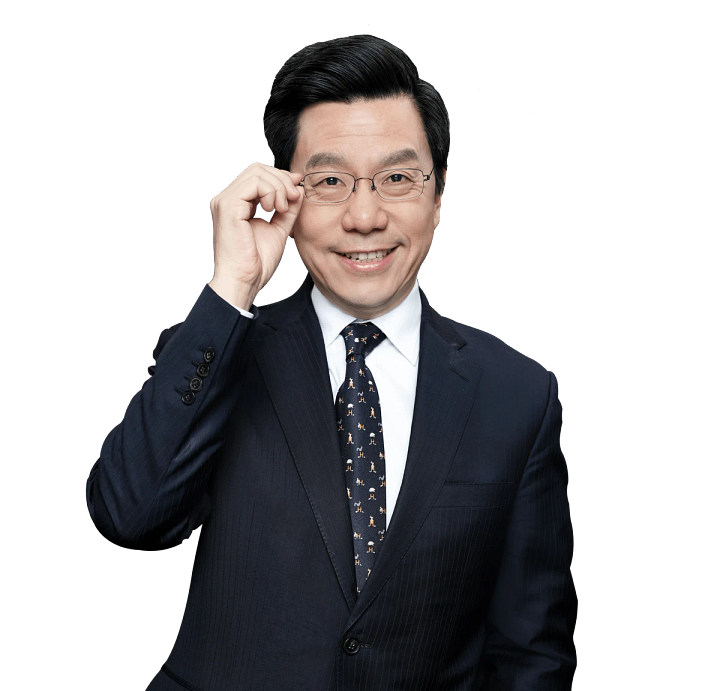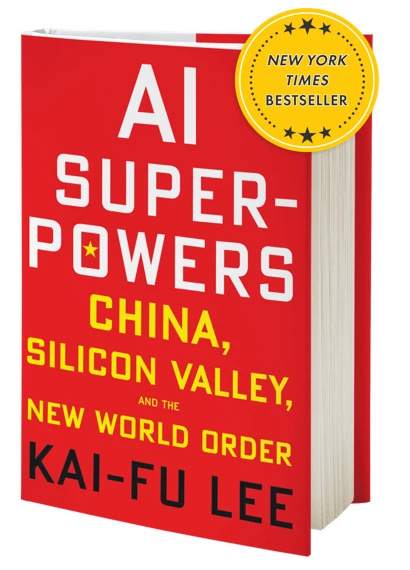

/the chairman/
Kai-Fu Lee is the Chairman and CEO of Sinovation Ventures. A former senior executive at Apple, Microsoft, and Google, he carries massive star power in China and is followed by over 50 million people on Sina Weibo. Beyond his career achievements, he is also a cancer survivor.
As an AI research engineer specializing in voice processing, Kai-Fu Lee’s team developed early voice recognition/interface technologies (such as PlainTalk, Casper, and GalaTea) that were integrated into Apple’s products and R&D during the 1990s—long before voice recognition became mainstream.
/the comparison/
In his book AI Superpowers (2018), Mr. Lee compares the relative strengths and weaknesses of the U.S. and China. He uses the principle of duality—or yin and yang—to help readers understand that there is a deep difference in the cultures, organizations, and policies of these two nations.
That one nation prizes innovation, while another made its mark in manufacturing by imitating.
One promotes mission-driven entrepreneurship, while the other shaped its entrepreneurship to suit market demands. One wants to solve problems, the other has a tendency toward wealth creation. One is egocentric and bullish, the other favors mercenary or guerrilla tactics. One is driven by a lofty mindset of abundance and seeks to transform the world, while the other plays for survival, given the scarcity experienced by earlier generations. For one, originalitymatters; for the other, reverse engineering suffices. One relies on hard work, the other is extremely hard-working. While one is keen to localize, the other believes one size fits all.
Other important differentiators include product design, decision-making, subscription models, hiring and promoting local talent, and doing the legwork.
While the U.S. tends to operate on a laissez-faire model for economic policymaking, the Chinese government has adopted a hybrid approach to capitalism—offering subsidies, low-rent spaces for startups, facilitation centers, "guiding funds" invested through local governments, and delegating support functions to mayors or regional authorities.
According to Kai-Fu, the most valuable product to emerge from China’s copycat era wasn’t a product at all—it was the entrepreneurs themselves.
/through compassion/
While the central theme of the book is the advancement of AI, Kai-Fu discusses one of the most important yet often overlooked aspects of modern life—the human experience and the loneliness that the quantified world can create. Especially in a hyper-competitive, winner-takes-all environment where the premium is placed on maximizing value or profits.
Kai-Fu Lee makes a case for a more humane approach to AI. He advocates a shift—from emotionally draining, self-centered, attention-seeking uses of AI—to a technology that serves the needs of society. Not exploitative, but synergistic, emotionally fulfilling, and enabling shared progress through mutual understanding and collective prosperity.
By his own admission, this realization came after his near-death experience with cancer. The act of writing a will, spending time with a monk, and receiving love, care, and support from his family during recovery brought this side of life into focus. While not entirely oblivious to it earlier, he had approached it more as a calculated exercise.
As an engineer who once couldn’t resist being present at a product demo on the day his daughter was born—and known as an “Ironman” by his team—Kai-Fu came to realize that life is more than a value-maximization equation. It's ironic that someone who liked to discuss what his tombstone might say had to confront his own mortality after being diagnosed with lymphoma in the gut, and told he had only a few more years to live.
In essence, Kai-Fu Lee is pitching for a more compassionate world, built on the foundation of love.


